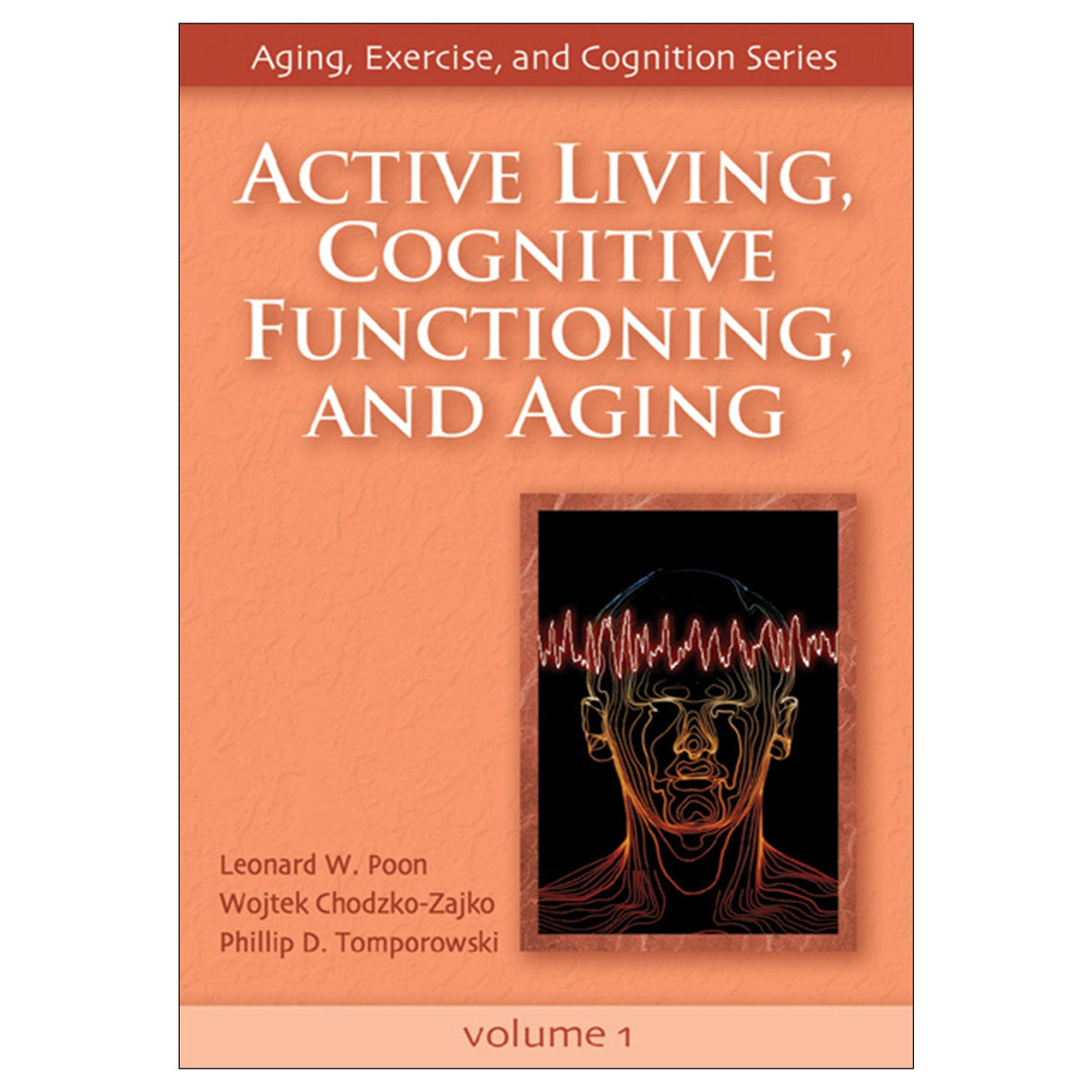Active Living, Cognitive Functioning, and Aging
$39.00 CAD
Although many factors contribute to a healthy body and mind, an active lifestyle is considered to be one of the most important. Those who want to keep abreast of what is currently known about the effects of exercise and an active lifestyle on cognitive functioning in old age will benefit from this foundational text.
Active Living, Cognitive Functioning, and Aging is the first volume in Human Kinetics' Aging, Exercise, and Cognition series. In this volume, internationally known experts present state-of-the-art findings related to exercise and cognitive functioning of older adults. The book's review of research on pertinent issues in measurement and physiological mechanisms will update your knowledge while challenging your current thinking.
Using a multidisciplinary approach, Active Living, Cognitive Functioning, and Aging keeps you on the cutting edge of these areas:
-The status of research evidence
-Future directions of research
-Advances in measurement
-Key issues related to aging, physical activity, cognition, and putative mechanisms
-The potential of intervention programs that positively influence cognition
-Implications for public policy making for healthier older adults
The book's 11 chapters are organized into three areas. The first three chapters focus on cognitive mechanisms of the relationships between exercise and cognition. Chapters 4 and 5 explore potential neurobiological and physiological mechanisms that intervene between exercise and cognition. Chapters 6 through 11 provide advances in measurement designs and tools that could increase measurement sensitivity in research on exercise, fitness, and cognition.
Active Living, Cognitive Functioning, and Aging will raise consciousness among researchers, practitioners, policy makers, and the public about the beneficial effects of an active lifestyle on the mind during the aging process.
Each volume in Human Kinetics' Aging, Exercise, and Cognition series presents advanced research and key issues for understanding and researching the links between exercise, aging, and cognition. All three volumes are essential references for cognitive gerontologists, medical and health science researchers, exercise science researchers and professionals, and public health administrators interested in scientific evidence demonstrating the beneficial effects of regular physical activity on cognitive functioning and general health during aging.
Audience
A reference for exercise science researchers and professionals, cognitive gerontologists, health science and medical researchers, and public health practitioners. A supplemental text for graduate courses related to the topics of physical activity, cognitive functioning, and aging.
Foreword
Contributors
Preface
Chapter 1. National Blueprint: Increasing Physical Activity Among Adults 50 and Older: Implications for Future Physical Activity and Cognitive Functioning Research
Wojtek Chodzko-Zajko
Chapter 2. Physical Activity, Cognition, and Aging: A Review of Reviews
Phillip D. Tomporowski
Chapter 3. Commonalities in Aging- and Fitness-Related Impact on Cognition
Leonard W. Poon and Carol Ann Harrington
Chapter 4. Effect of Exercise on Cognition in Older Adults: A Reexamination of Proposed Mechanisms
Robert E. Dustman and Andrea White
Chapter 5. Current Findings in Neurobiological Systems' Response to Exercise
Philip V. Holmes
Chapter 6. Measurement of Physical Activity
Rod K. Dishman
Chapter 7. Assessing Physical Performance in Older Adults
M. Elaine Cress
Chapter 8. Sleep, Mood, and Chronic Pain Problems
Patrick J. O'Connor
Chapter 9. Brain Blood Flow and Methodological Considerations
Kevin McCully and Yagesh Bhambhani
Chapter 10. Neuroimaging in an Aging Population: Potential Tools in Cognition, Everyday Functioning, and Exercise Research
L. Stephen Miller
Chapter 11. Issues of Aging, Physical Activity, Cognition, and Putative Mechanisms for a Relationship: A Discussion
Waneen W. Spirduso
References
Index
About the Editors
“Simply put, the topics chosen and discussed in Active Living, Cognitive Functioning, and Aging could not be of greater importance . . . to the imperatives imposed by global aging.”
Walter M. Bortz II, MD, Stanford University
“Whether our emerging billions of older selves will constitute a resource or a burden to global society is directly dependent on the issues provocatively discussed in this and subsequent volumes. . . . Nothing could be of greater importance to the imperatives imposed by global aging than the issues discussed in this work.”
Walter M. Bortz II, MD, Stanford University





